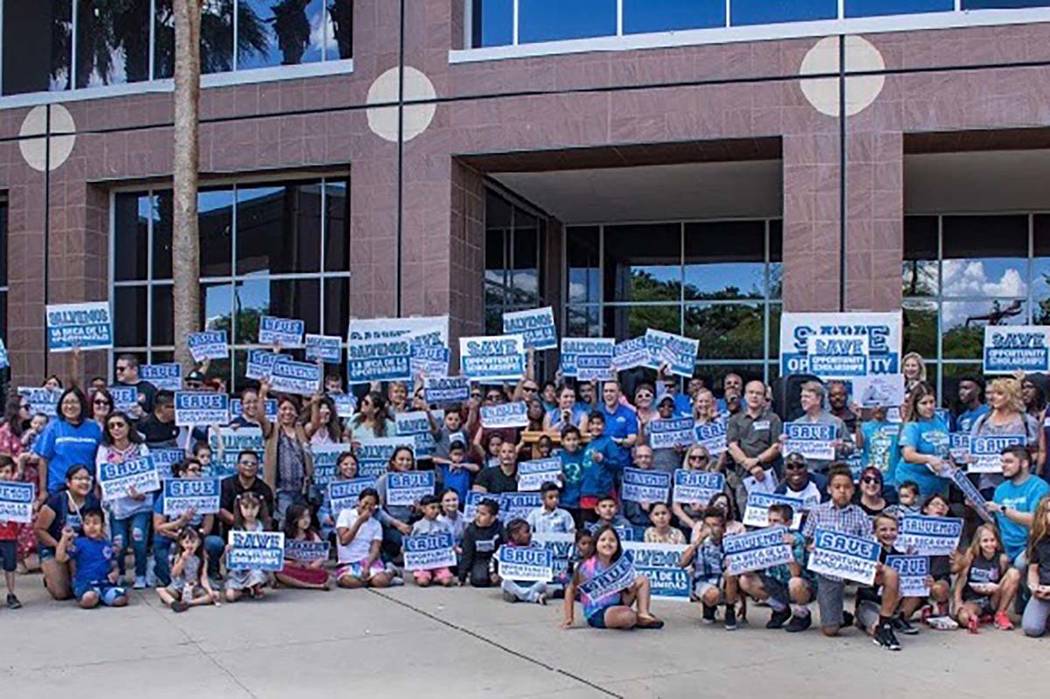Soifer talks about prospects for school choice as Legislature winds down
Many students using Opportunity Scholarships will lose their funding within the next two years unless the Legislature acts. It’s one of the most popular education programs in the state, creating a disconnect between what the public wants and Democrat leadership will bring up for a vote. That’s according to Don Soifer, president, Nevada Action for School Options.
Opportunity Scholarships is a school choice program funded by businesses donating to private scholarship granting organizations. Students can use those funds to pay for private school tuition. Donating businesses receive a dollar-for-dollar tax credit, up to a yearly cap set by the legislature. The current cap is $6.7 million. The legislature also allocated $20 million in one-time credits in 2017.
“The program is going great,” Soifer said while filming Nevada Politics Today. “Those families have done a terrific job weighing in and letting the legislators know how much they love the program. They’re doing really well in the program. By all indications, student outcomes are strong.
“The program’s not going to go away. The program is not going to be eliminated. Right about now, where things stand, the program will continue with about $6.5 million in funding a year, which is going to keep most of the families and students that are currently on Opportunity Scholarships on track at least for a year — hopefully, depending on circumstances, maybe more.”
Additional funding will make the difference between students keeping or losing their scholarships a year from now.
“If nothing changed, the families that are currently in the program are going to be fine for at least one more year,” Soifer said. The legislature, however, meets only every other year.
Soifer thinks it’s possible that the legislature allocates additional tax credits for the program as the session comes to a close.
“We’ve known for a while that there’s a high likelihood that school choice is going to be part of that end game process,” he said.
Soifer believes there’s a disconnect between public support for the program and the legislature’s inaction.
“This tiny program — 2,300 kids got scholarships last year — has got to be one of the most popular programs and certainly one of the most popular education programs in the state,” Soifer said. “Seven out of 10 Nevadans, no matter how you cut it, are supportive of the program. It’s even higher among communities of color. It’s higher than that among communities of color who are parents of school-aged kids. That message is loud and clear in the legislature. One thing you hear from Democrats who are committee chairs is that ‘We really want to make sure that kids who currently have scholarships are allowed to matriculate through the whole program [and that] the kids who have scholarships now don’t lose their scholarships.’
“That’s something that’s been said repeatedly throughout. There’s a real disconnect though, in this state, between how voters, how families, how taxpayers feel about a program that’s incredibly popular and how their elected leadership, particularly the Democratic leaders in the legislature, the committee chairs, are about bringing it to a vote. Even among the elected officials that we have, there’s much stronger support among the members than there is among the leadership, who don’t want to have hearings or [have it] come up for a vote.”


















